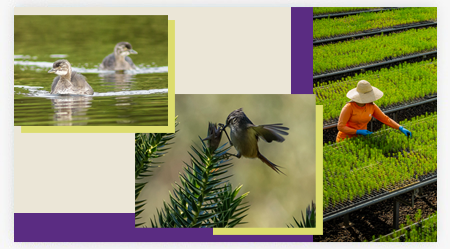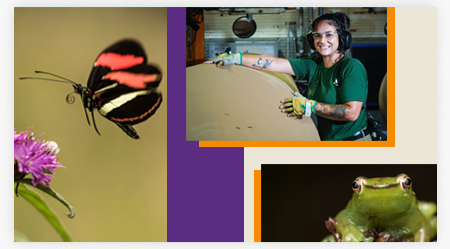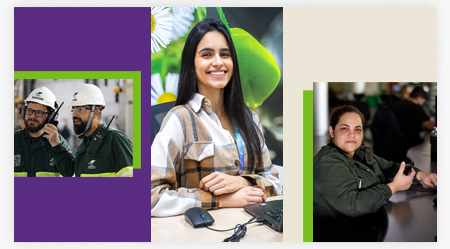Investments
Investments
Throughout 2023, Klabin invested BRL 4.307 billion in its operations and expansion projects. Of this amount, BRL 808 million was allocated to forestry, representing a 46% increase compared to 2022, due to a 52% increase in planted area in 2023, mainly in Paraná, for the Puma II Project. Investments in operational continuity totaled BRL 879 million, representing a 24% annual increase, especially explained by the expanded scope.
Millions of BRL |
2023 |
2022 |
|---|---|---|
Forestry |
808 |
555 |
Operational continuity |
879 |
707 |
Purchase of standing timber/forest expansion |
290 |
758 |
Special projects |
785 |
593 |
New boiler at Monte Alegre |
7 |
- |
Puma II Project |
1,539 |
3,204 |
Total |
4,307 |
5,817 |
New high-value-added products
During the second phase of the Puma II Project, Paper Machine 28 came online in June 2023. The new paperboard machine has a production capacity of 460,000 tons per year and the flexibility to produce White Top Liner and Kraftliner. PM28 enabled the launch of the Eukaliner® 8k White Coated paper, the first Brazilian Coated White Top Liner, which has provided customers in the corrugated and micro-corrugated packaging market with significant gains in both grammage reduction and print quality of the final product.
With advanced technology, the equipment was designed to produce paperboard with greater strength and quality, primarily targeting the food and beverage segments, such as long-life packaging and packaging for beer and processed foods (cereals, chocolate and pizza, among others), and for the growing food service sector (cups and trays). In the last quarter of 2024, with the launch of white paperboard, the PM28 product portfolio will bring more innovations, enabling supply to new market segments, including pharmaceutical and publishing, and the production of white products for the food service segment.
The numbers behind the project
PM28, along with PM27, successfully marks the implementation of the Puma II Project, Klabin's largest investment in history, totaling BRL 12.9 billion.
Increased production capacity
Horizonte Unit
The expansion project of the Horizonte Plant, located in the Metropolitan Region of Fortaleza (CE), afforded Klabin an additional production capacity of 80,000 tons per year with a new corrugator, which produces corrugated board sheets for packaging. The machine is a key component for the Company to meet the growing market demand in the Northeast.
Figueira Project
Klabin's new corrugated board box factory, the Figueira Project in Piracicaba (SP), came online in April of 2024. With a total investment of BRL 1.57 billion, the unit has two corrugators and nine printers, as well as all infrastructure and support areas. It has an annual production capacity of 240,000 tons of corrugated board.
Forest growth
In the search for strategic alternatives to anticipate self-sufficiency, Klabin continues to expand its forest area to meet the growing demand for supply, especially with the start of operations of Paper Machine 28. The contract with Arauco to acquire companies holding assets representing 150,000 hectares of forest areas (85,000 of which are productive) – the Caetê Project – integrates into this strategy precisely.
At the closing of this report, the transaction was still subject to the verification of contractually agreed-upon conditions precedent typical in negotiations of this nature. Upon its completion, Klabin will bring the land expansion program for the Puma II Project to an end, reducing the average structural radius of Paraná and generating significant gains from operational synergies and lower estimated future investments.
The potential for growth in the forestry sector consists not only of acquisitions of new land and forests, but also in projects that enable the optimization of current assets. Here are some examples:
-
mechanization of silviculture with excellence and precision;
-
development of pine and eucalyptus species resistant to different climates, focusing on genetic material and management models;
-
Research, Development, and Innovation projects to further elevate productivity indicators, already considered leaders in the industry;
-
projects throughout the entire operations and logistics system for process optimization;
-
advancements in planning to optimize plantations;
-
the ability to integrate interstate operations.
Debt management
Klabin ended 2023 with gross debt of BRL 30.908 billion, up BRL 3.367 billion compared to the end of 2022. This increase is mainly justified by disbursements of financing lines throughout the year, along with BID Invest, International Finance Corporation (IFC), and JICA*, as well as the syndicated loan (completed with nine financial institutions) and Export Credit Note. These effects were partially offset by the early repayment of the 2024 Bond, the maturity of an Agribusiness Receivables Certificate (CRA) in the last quarter of the year, and the effect of the appreciation of the Brazilian real against the U.S. dollar on foreign currency loans.
Klabin has 38% of its gross debt in green financial instruments (Green Bonds, Sustainability-Linked Bonds, and IDB/IFC/JICA Loans).
Regarding the average debt maturity, the year 2023 ended with 94 months compared to 109 months in 2022. Klabin's average cost of foreign currency debt, the main source of credit for the Company, ended the period at 5.7% per year, up from 5.2% per year at the end of 2022.
With the first issuance of green bonds in 2017, Klabin began publishing its Green Bonds Report from 2018 to 2023, reinforcing its commitment to transparency in its investments. In March 2024, the Company included other financial instruments related to sustainability, such as Sustainability-Linked Bonds, Sustainability-Linked Loans, Revolving Credit Facility (RCF), and Receivables Anticipation, consolidating them into the Sustainable Finance Report. The document presents the investments made in 2023.
*Green Bond Transparency Platform developed by the Inter-American Development Bank (IDB) that supports the harmonization and standardization of green bond reporting in Latin America and the Caribbean by providing references to disseminate best practices.






